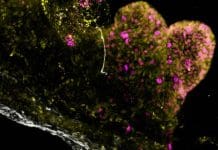The immune system is the body’s natural defence against antigens such as bacteria and viruses, but in some cases, it can malfunction. We explore the prevalence of immune system disorders, the associated unmet medical needs, and therapeutic research
The immune system is vital to our overall health. Made up of a complex network of cells, tissues, and organs, it can process and store information on harmful pathogens to help protect us from illness. However, when the immune system is weak or does not function correctly, it can trigger reactions and cause symptoms of disease. Equally, when the immune system cannot distinguish a ‘foreign’ invader from one’s own cells and tissues, it can initiate an autoimmune response whereby our immune system turns on itself and mistakenly attacks healthy tissues.
The vast and somewhat enigmatic immune landscape has intrigued researchers for many years as they try to unearth its impact on disease development, and reaction to therapeutics. Despite there being over 100 known autoimmune diseases, most still have no known cure and patients with rarer conditions can go years without proper diagnosis. (1)
Why does the immune system malfunction?
There are many reasons why the immune system fails to function correctly; some people are born with a weak immune system (primary immune deficiency), and others may have a more vulnerable immune system due to disease (acquired immune deficiency). The immune system can also fail to work correctly if it is overactive or reacts negatively to harmless substances, triggering an autoimmune response.
While the root causes of many immune-system-related conditions have evaded scientific understanding, it is thought that genetics and the interplay between genetics and the environment affect the immune response and the development of autoimmune diseases. For instance, conditions such as asthma, eczema and allergic rhinitis may be caused by genetic susceptibility to harmless environmental allergens, such as dust, mould, pollen, and certain foods.
In autoimmune diseases, the immune system attacks healthy cells, tissues, and organs. In type 1 diabetes, for instance, T lymphocytes immune cells destroy cells in the pancreas that make insulin, a hormone that controls blood sugar levels. Similarly, the immune system attacks body tissues and organs in lupus, including the lungs and kidneys. These chronic conditions can lead to the weakening of bodily functions and even become life-threatening.
The likelihood of developing an autoimmune disease is not fully understood, but is thought to be influenced by genetics, environmental factors, gender, sex hormones and infection. Women are more susceptible to these diseases than men, and they remain a significant cause of mortality in youth and middle age. (1)
Autoimmune conditions and their unmet medical needs
The immune system’s multi-faceted network and systems have made it difficult for scientists to understand the subtle changes that can trigger an autoimmune response. This is partly why there remain significant unmet medical needs for autoimmune conditions.
Patients with autoimmune conditions often have limited treatment options that address symptoms and act by suppressing the immune response. Medications can have broad effects and are not specific to the patient’s disease, which can lead to unpredictable and severe side effects such as infections and malignant disease.
Research and development for autoimmune diseases
The global recognition that an increasing number of people have autoimmune diseases and require effective treatments has led to the emergence of innovative solutions and targeted research. For example, anti-CD20 mAbs for B cell depletion therapy has demonstrated encouraging outcomes for patients with neuroinflammatory diseases. (2) Additionally, CAR T-cell therapy involving the modification of immune cells was shown to send lupus into remission in five severely ill patients. (3)
Individuals who have autoimmune conditions face a higher likelihood of developing cancer. Disruptive technologies such as artificial intelligence and computational immunology are also broadening our understanding of how the immune system responds to certain stimuli and treatments, which can help inform the development of effective therapies in the future. (4) Novel solutions (such as novel checkpoint inhibitors and neoantigen vaccines are being developed in immunotherapy – a treatment that helps the immune system recognise and destroy cancer cells. For instance, clinical cancer immunologists and biological engineers at the Wyss Institute formed an NIH-funded Immuno-Engineering to Improve Immunotherapy (i3) Center and are working on solutions to provoke anti-cancer T-cell immunity for treatment-resistant cancers. (5)
References
- https://www.niehs.nih.gov/health/materials/autoimmune_diseases_and_your_environment_508.pdf
- Jung SM, Kim WU. Targeted Immunotherapy for Autoimmune Disease. Immune Netw. 2022 Feb 17;22(1):e9. doi: 10.4110/in.2022.22.e9. PMID: 35291650; PMCID: PMC8901705
- Mackensen A, Müller F, Mougiakakos D, Böltz S, Wilhelm A, Aigner M, Völkl S, Simon D, Kleyer A, Munoz L, Kretschmann S, Kharboutli S, Gary R, Reimann H, Rösler W, Uderhardt S, Bang H, Herrmann M, Ekici AB, Buettner C, Habenicht KM, Winkler TH, Krönke G, Schett G. Anti-CD19 CAR T cell therapy for refractory systemic lupus erythematosus. Nat Med. 2022 Oct;28(10):2124- 2132. doi: 10.1038/s41591-022-02017-5. Epub 2022 Sep 15. Erratum in: Nat Med. 2022 Nov 3;: PMID: 36109639
- https://www.healtheuropa.com/unravelling-the-complexities-of-the-immune-system-with-ai/122011/
- https://wyss.harvard.edu/collaboration/i3-center-biomaterials-to-create-t-cell-immunity/ Volume 52, Issue 1,2020,Pages 17-35,ISSN 1074-7613, https://doi.org/10.1016/j.immuni.2019.12.011.
editorial@openaccessgovernment.org








